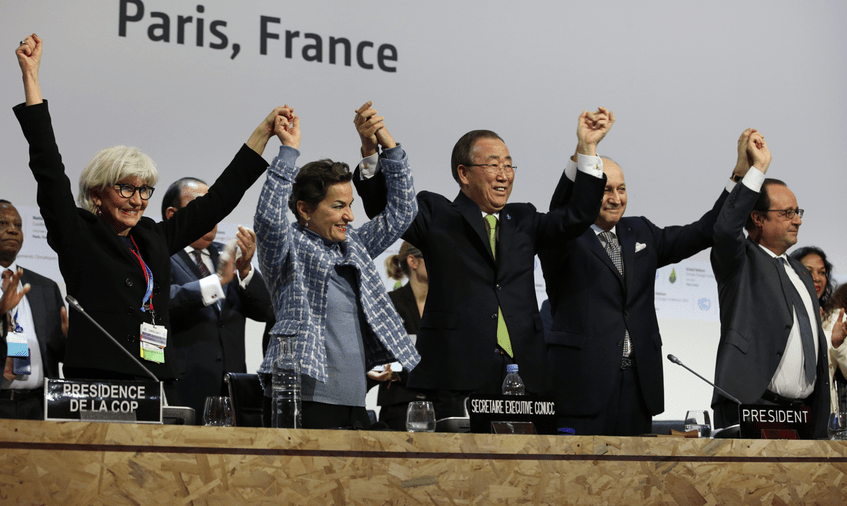 5 October 2016: The Governments of Austria, Bolivia, Canada, France, Germany, Hungary, Malta, Nepal, Portugal and Slovakia have deposited their instrument of ratification, acceptance, approval or accession to the Paris Agreement on climate change with the UN. These latest ratifications, deposited on 5 October 2016, bring the total number of Parties to the UNFCCC that have acceded to the Agreement to 74. As these countries represent 58.82% of global greenhouse gas (GHG) emissions, the two threshold needed for the Paris Agreement to come to force have now been met.
5 October 2016: The Governments of Austria, Bolivia, Canada, France, Germany, Hungary, Malta, Nepal, Portugal and Slovakia have deposited their instrument of ratification, acceptance, approval or accession to the Paris Agreement on climate change with the UN. These latest ratifications, deposited on 5 October 2016, bring the total number of Parties to the UNFCCC that have acceded to the Agreement to 74. As these countries represent 58.82% of global greenhouse gas (GHG) emissions, the two threshold needed for the Paris Agreement to come to force have now been met.
The Paris Agreement has 191 signatories to date. It was adopted by the Parties to the UNFCCC in December 2015, and will enter into force on the 30th day after the date on which at least 55 Parties to the UNFCCC, representing at least 55% of global GHG emissions, have deposited their instruments of ratification, acceptance, approval or accession. Since these two threshold were crossed on 5 October, the Agreement will enter into force on 4 November.
Entry into force triggers the launch of the Agreement’s governing body, the Conference of the Parties serving as the meeting of the Parties to the Paris Agreement or CMA. The first session of the CMA will therefore take place at the upcoming Marrakesh Climate Change Conference, in Morocco from 7-18 November 2016. The UNFCCC Secretariat has indicated that specific dates would be announced in the coming days.
The Paris Agreement is also expected to contribute to the 2030 Agenda for Sustainable Development, especially Sustainable Development Goal (SDG) 13 (Take urgent action to combat climate change and its impacts). [Status of Ratification Website] [List of Ratifications, Acceptances and Approvals] [UNFCCC Press Release] [UN Press Release]